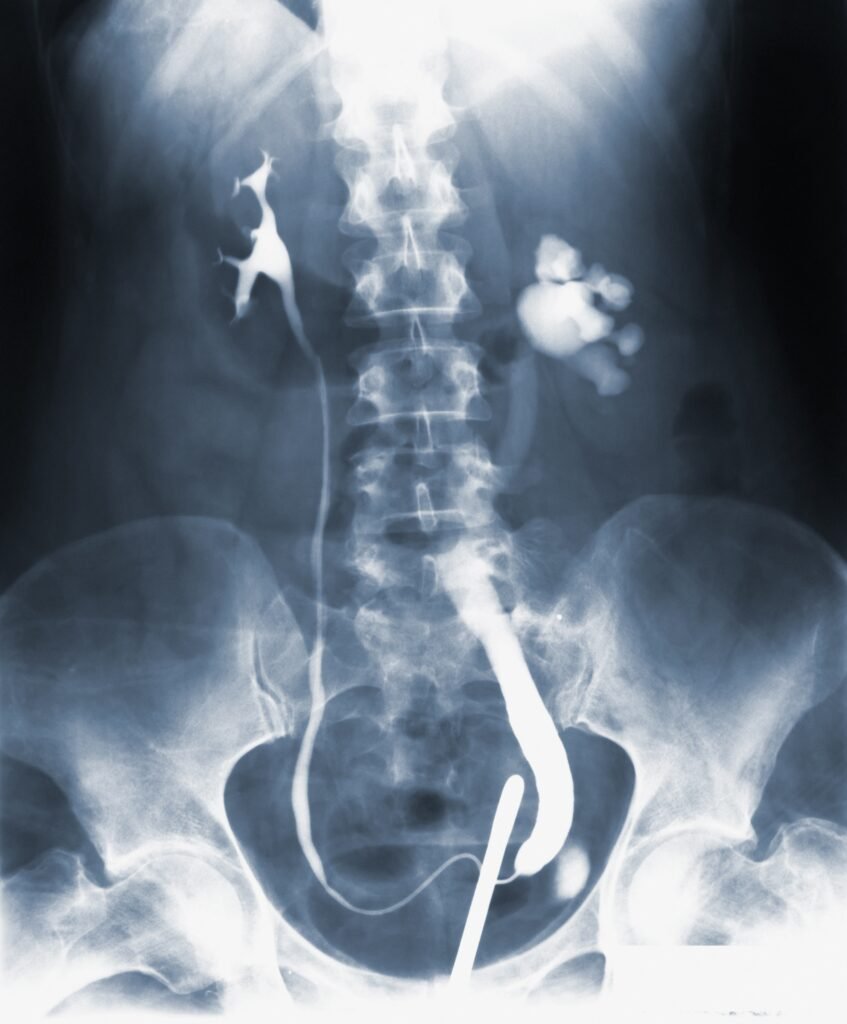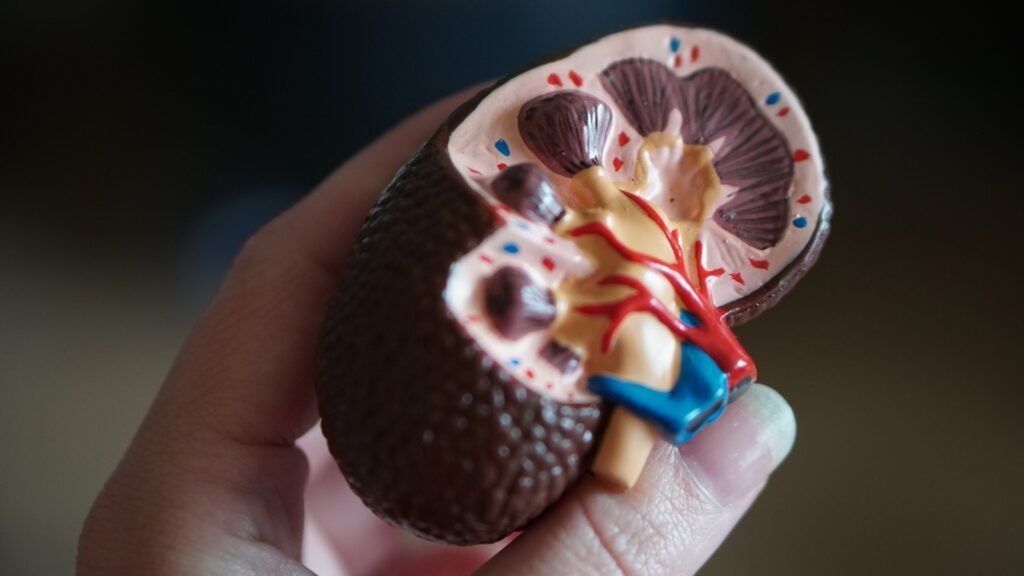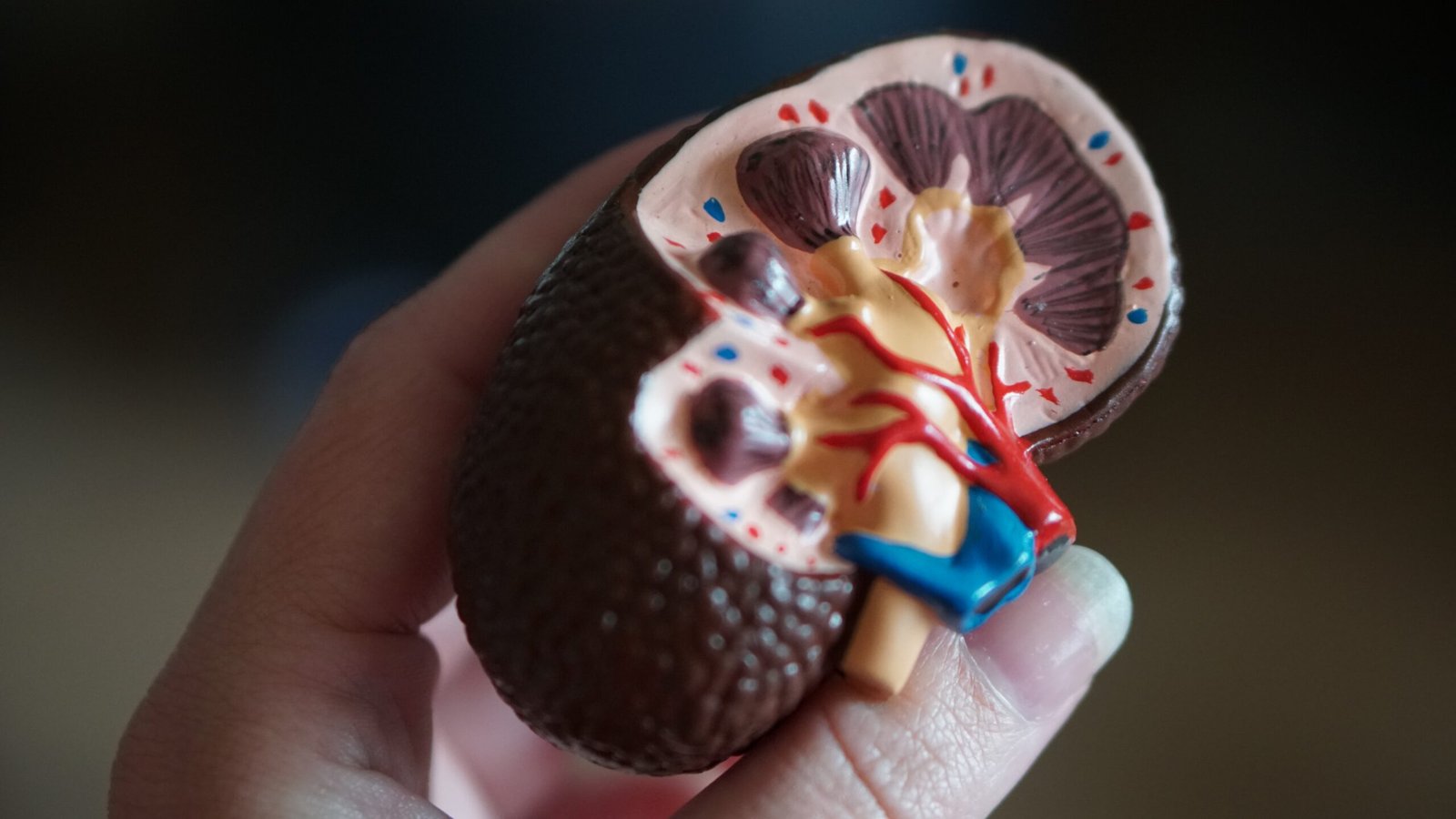Having healthy dietary habits can play a crucial role in preventing the formation of kidney stones. In this article, we will explore the relationship between your diet and the occurrence of kidney stones. By understanding what foods to eat and what to avoid, you can make informed choices that support kidney health and reduce your risk of developing those pesky stones. So if you’re curious about how your dietary habits can impact kidney stone formation, read on to discover some helpful tips and recommendations!
Types of Kidney Stones
Calcium Stones
Calcium stones are the most common type of kidney stones and are typically made up of calcium oxalate. Oxalate is a naturally occurring compound found in foods, and when it combines with calcium in the urine, it can form crystals that eventually lead to stone formation. These stones can vary in size and may be painless or cause severe discomfort.
Uric Acid Stones
Uric acid stones form when there is an excessive amount of uric acid in the urine. This can occur when there is an overproduction of uric acid or if the urine is too acidic, making it difficult for uric acid to dissolve. Uric acid stones can be prevented by modifying the diet to reduce the levels of purines, which are found in certain foods and are converted into uric acid in the body.
Struvite Stones
Struvite stones, also known as infection stones, form in the presence of urinary tract infections caused by certain bacteria. These stones tend to grow quickly and can become quite large. Treatment typically involves addressing the underlying infection and may require surgical intervention.
Cystine Stones
Cystine stones are rare and are caused by a genetic disorder that affects the amount of cystine excreted in the urine. These stones form as a result of the excess cystine crystallizing in the kidneys. Managing cystine stones often requires a combination of dietary changes, medication, and increased fluid intake.
The Link Between Dietary Habits and Kidney Stones
Your dietary habits play a significant role in the development and prevention of kidney stones. Certain dietary factors can increase the risk of stone formation, while others can help prevent stone recurrence. By adopting healthy eating habits and making specific dietary choices, you can actively reduce your chances of developing kidney stones.

This image is property of images.unsplash.com.
Eating to Prevent Kidney Stones
Increase Fluid Intake
Staying well-hydrated is crucial for kidney stone prevention, especially if you are prone to forming calcium stones. Drinking an adequate amount of water dilutes urine and helps flush out any substances that may form stones. Aim to drink at least 8 glasses of water per day and increase your intake during warmer weather or if you engage in strenuous activities that cause you to sweat.
Choose a Low-Sodium Diet
A high-sodium diet can increase the amount of calcium in your urine, leading to stone formation. It is important to limit sodium intake by reducing your consumption of processed foods, fast food, and other high-sodium products. Opt for fresh, whole foods and use herbs and spices to flavor your meals instead of salt.
Consume Sufficient Calcium
Contrary to popular belief, getting enough calcium from your diet is essential for kidney stone prevention. Adequate calcium intake can actually help prevent the absorption of oxalate in the intestines, reducing the risk of calcium stone formation. It is recommended to aim for the recommended daily calcium intake through foods such as low-fat dairy products, fortified plant-based milks, and leafy greens.
Follow a High-Fiber Diet
A diet rich in fiber can be beneficial for kidney stone prevention. High-fiber foods, such as fruits, vegetables, legumes, and whole grains, can help lower the risk of stone formation by promoting healthy digestion and reducing the absorption of oxalate in the intestines.
Limit Animal Protein
Consuming excessive amounts of animal protein, such as red meat, poultry, and seafood, can increase the levels of uric acid in your urine, contributing to the formation of uric acid stones. It is recommended to moderate your intake of animal protein and opt for plant-based protein sources, like beans, lentils, and tofu, more often.
Moderate Oxalate Intake
Oxalate is found in many plant-based foods and, when combined with calcium, can contribute to the formation of calcium oxalate stones. While it is important to consume a wide variety of fruits and vegetables for overall health, it is wise to moderate the intake of high-oxalate foods, such as spinach, rhubarb, beets, and nuts.
Monitor Vitamin C Consumption
Vitamin C is an essential nutrient, but excessive intake of vitamin C supplements or high-dose vitamin C therapy can increase the risk of kidney stone formation. If you take vitamin C supplements, it is advisable to stay within the recommended daily allowance and avoid megadoses.
Maintain a Healthy Weight
Obesity and being overweight can increase the risk of kidney stone formation. By maintaining a healthy weight through a well-balanced diet and regular exercise, you can lower your chances of developing kidney stones.
Control Sugar and Sweetened Beverages
Consuming large amounts of sugar and sweetened beverages can lead to weight gain and increase the risk of kidney stone formation. It is important to limit your intake of sugary foods and drinks and opt for healthier alternatives, such as water or unsweetened herbal tea.
Limit Salt and Processed Foods
High sodium intake from salt and processed foods can increase the risk of stone formation. It is recommended to limit the consumption of salty snacks, canned foods, deli meats, and other processed foods that are often high in sodium.
Foods to Eat for Kidney Stone Prevention
Water
Water is the best fluid for kidney stone prevention. Aim to drink at least 8 glasses (64 ounces) of water per day to stay well-hydrated and help flush out any substances that may contribute to stone formation.
Fruits and Vegetables
Aim to include a variety of fruits and vegetables in your diet. These foods are naturally low in sodium and high in water content, fiber, and essential nutrients. Citrus fruits, such as lemons and oranges, are particularly beneficial for kidney stone prevention due to their high citrate content.
Whole Grains
Choose whole grains, such as brown rice, quinoa, and whole wheat bread, over refined grains. Whole grains provide more fiber and other essential nutrients, which can help lower the risk of stone formation.
Low-Fat Dairy Products
Include low-fat dairy products, such as milk, yogurt, and cheese, in your diet. These foods are a good source of calcium, which can help prevent the absorption of oxalate in the intestines. If you are lactose intolerant or follow a vegan diet, opt for fortified plant-based milks and yogurts.
Plant-Based Proteins
Incorporate plant-based protein sources, such as legumes, tofu, tempeh, and nuts, into your meals. These protein-rich foods are typically lower in purines and can help reduce the risk of uric acid stone formation.
Citrus Fruits
Citrus fruits are excellent for kidney stone prevention due to their high citrate content, which can help prevent stone formation. Include citrus fruits, like lemons, oranges, and grapefruits, in your daily diet.
Olive Oil
Replace unhealthy fats, like butter and margarine, with olive oil. Olive oil is rich in healthy monounsaturated fats and can be a beneficial addition to a kidney stone prevention diet.

This image is property of images.unsplash.com.
Foods to Avoid for Kidney Stone Prevention
High Oxalate Foods
While it is important to consume a variety of fruits and vegetables, it is advisable to moderate the intake of high-oxalate foods, such as spinach, rhubarb, beets, and nuts. These foods can contribute to the formation of calcium oxalate stones.
Sodium-Rich Foods
Limit your intake of sodium-rich foods, such as salty snacks, processed meats, canned foods, and fast food. High sodium intake can increase the amount of calcium in your urine and contribute to stone formation.
Animal Protein
While it is not necessary to eliminate animal protein from your diet, it is wise to limit excessive intake. Reducing the consumption of red meat, poultry, and seafood can lower the risk of uric acid stone formation.
Processed Foods
Processed foods, such as packaged snacks, frozen meals, and fast food, are often high in sodium, unhealthy fats, and sugar. These foods lack the essential nutrients needed for a healthy diet and can increase the risk of kidney stone formation.
Sugar and Sweetened Beverages
Limit your intake of sugary foods and drinks, as they can contribute to weight gain and increase the risk of stone formation. Opt for water, unsweetened herbal tea, or naturally flavored beverages instead.
Specific Diets for Kidney Stone Prevention
DASH (Dietary Approaches to Stop Hypertension) Diet
The DASH diet focuses on consuming fruits, vegetables, whole grains, low-fat dairy products, and lean proteins while limiting sodium, added sugars, and unhealthy fats. This diet has been shown to lower blood pressure, reduce the risk of heart disease, and help prevent kidney stones.
Mediterranean Diet
The Mediterranean diet emphasizes whole foods, such as fruits, vegetables, whole grains, legumes, nuts, seeds, and healthy fats like olive oil. It includes moderate amounts of fish, poultry, and dairy products while limiting red meat and processed foods. The Mediterranean diet has been associated with numerous health benefits, including a reduced risk of developing kidney stones.
Low-Oxalate Diet
A low-oxalate diet restricts the consumption of foods high in oxalate. This diet may be recommended for individuals who have a history of calcium oxalate stones. Foods to avoid or limit on a low-oxalate diet include spinach, rhubarb, beets, nuts, and certain teas.
Low-Sodium Diet
A low-sodium diet restricts the consumption of high-sodium foods. This diet can be beneficial for those who are prone to stone formation, as high sodium intake can increase the amount of calcium in the urine. The DASH diet is an example of a low-sodium diet.
Vegetarian or Vegan Diet
A vegetarian or vegan diet can be beneficial for kidney stone prevention, as it naturally limits the intake of animal protein and promotes the consumption of plant-based foods. However, it is important to ensure adequate nutrient intake and consult with a registered dietitian to create a well-balanced vegetarian or vegan meal plan.

This image is property of images.unsplash.com.
Supplements and Medications for Kidney Stone Prevention
Citrate Supplements
Citrate supplements, such as potassium citrate or magnesium citrate, can help prevent the formation of kidney stones by increasing urine citrate levels. Citrate inhibits stone formation by binding to calcium and preventing crystal formation. These supplements should be taken under the guidance of a healthcare professional.
Thiazide Diuretics
Thiazide diuretics are a type of medication that can be prescribed to lower calcium levels in the urine, reducing the risk of calcium stone formation. These medications work by increasing calcium reabsorption in the kidneys.
Allopurinol (for Uric Acid Stones)
Allopurinol is a medication that can be prescribed to reduce uric acid production in the body. It is often recommended for individuals who have a history of uric acid stones or high levels of uric acid in the urine.
Potassium Citrate (for Calcium Stones)
Potassium citrate can be prescribed to increase urine citrate levels and prevent the formation of calcium stones. It is often recommended for individuals with a history of calcium stones.
Lifestyle Changes to Prevent Kidney Stones
Stay Hydrated
Maintaining adequate hydration is key for kidney stone prevention. Make sure to drink enough water throughout the day to help flush out substances that may contribute to stone formation.
Manage Weight
Maintaining a healthy weight is important for preventing kidney stones. By following a balanced diet and engaging in regular physical activity, you can manage your weight and reduce the risk of stone formation.
Exercise Regularly
Regular exercise can be beneficial for kidney stone prevention. Engaging in physical activity helps maintain a healthy weight and promotes overall well-being. Aim for at least 150 minutes of moderate-intensity aerobic exercise per week, along with strength training exercises twice a week.
Quit Smoking
Smoking has been linked to an increased risk of kidney stone formation. Quitting smoking can improve kidney health and reduce the risk of various other health complications.
Seeking Professional Advice
Consult a Registered Dietitian
If you have a history of kidney stones or are at risk of developing them, it is advisable to consult a registered dietitian. A dietitian can assess your diet, provide personalized recommendations, and help you create a meal plan that aligns with kidney stone prevention guidelines.
Medical Intervention
In some cases, medical intervention may be necessary to treat kidney stones or prevent their recurrence. If you have a history of kidney stones or experience symptoms, it is important to seek medical advice from a healthcare professional. They can provide appropriate treatment and preventive measures based on your specific situation.
Conclusion
Dietary habits play a crucial role in the development and prevention of kidney stones. By making thoughtful food choices, staying hydrated, and adopting a healthy lifestyle, you can actively reduce your risk of developing kidney stones. Remember to consult with healthcare professionals and registered dietitians for personalized advice and recommendations tailored to your individual needs. With the right dietary habits and lifestyle changes, you can enjoy better kidney health and minimize the risk of kidney stone formation.

